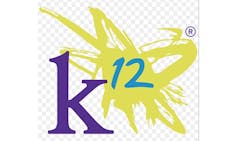Online charter operator will pay $8.5 million to settle lawsuit in California
A for-profit operator of 14 non-profit online charter schools in California has agreed to pay $8.5 million to settle a lawsuit over allegations that it made false claims and violated laws involving unfair competition.
The California Attorney General’s office says in a news release that the settlement calls for K12 Inc., a Virginia company, and its 14 affiliated charter schools known as the California Virtual Academies (CAVA) to pay $8.5 million to the state. The company also has agreed to put significant reforms into place regarding its contracts with the CAVA schools; undergo independent reviews of its services for students with disabilities; ensure accuracy of all advertisements; provide teachers with sufficient information and training to prevent improper claiming of attendance dollars; and change policies and practices to prevent the kinds of conduct that led to the lawsuit.
In its own news release about the settlement, K12 described the settlement differently. It said it agreed to a $2.5 million settlement and was paying an additional $6 million for the Attorney General office’s investigative costs.
“The settlement with the state includes no finding or admission of liability or wrongdoing by K12 or by the public, non-profit California Virtual Academies managed under contracts by K12,” the company says.
The 14 virtual charter schools K12 manages in California have about 13,000 students in grades K to 12.
The Attorney General’s office had alleged that K12 misled parents by publishing misleading advertisements about students’ academic progress, parent satisfaction, their graduates’ eligibility for University of California and California State University admission, class sizes, the individualized and flexible nature of their instruction, hidden costs, and the quality of the materials provided to students.
The K12 schools also were accused of collecting more state funding than they were entitled to; a whistle blower told investigators that students logging on for as little as one minute were counted as a full day of attendance,
“As my office continues an industry-wide examination of for-profit academic institutions, this settlement ensures K12 and its schools are held accountable and make much-needed improvements,” California Attorney General Kamala Harris says.
K12 contended that the state’s investigation showed that the company had mostly complied with regulations.
“Opponents of K12 and skeptics of public online education have spent years making wild, attention-grabbing charges about us and our business,” says Stuart Udell, K12’s chief executive officer. “The State of California used the full authority and investigative resources of the Office of the Attorney General to investigate these charges for over eight months. In the end, we demonstrated industry-leading levels of service and compliance with regulations and benefits to families.
The Attorney General’s office and K12 disagree about another aspect of the settlement.
Harris’s office says that as part of the settlement, “K12 will provide approximately $160 million in debt relief to the non-profit schools it manages—‘balanced budget credits’ that were accrued by the schools as a result of the fee structure K12 used in its contracts.” But K12 says the attorney general has “grossly mischaracterized” the balanced budget credits and the value of the settlement.
“The balance budget credits essentially act as subsidies to protect the CAVA schools, its students and teachers against financial uncertainties,” Udell asserts. “CAVA schools have not paid that money to K12, and K12 never expected to receive it given California’s funding environment.”
About the Author
Mike Kennedy
Senior Editor
Mike Kennedy, senior editor, has written for AS&U on a wide range of educational issues since 1999.
